OPEN Leaders
Please note this scheme is now closed. To discover alternative opportunities, join OPEN.
Strengthening leadership for policy engagement is one of the four strategic aims of the Oxford Policy Engagement Network (OPEN), and is key to achieving the other three:
- Improving access for the policymaking community to the best available research evidence and expertise at Oxford, and supporting its use in decision-making;
- Deepening our understanding of how research can inform policymaking, and developing the skills catalyse that process; and
- Creating and developing more opportunities for engagement, including through participation in relevant networks.
Upon appointment, our OPEN Leaders have led initiatives that have contributed to the aims above, for the benefit of OPEN members and others across the University. We spoke to them about their plans and achievements, implemented with funding from Research England’s Higher Education Innovation Fund.
Meet some of our past OPEN Leaders
Charlotte Ryland, Faculty of Medieval and Modern Languages
 Languages in the UK is a discipline in crisis, with engagement plummeting and a public discourse that undervalues the discipline’s importance for 21st-century Britain. This OPEN Leaders project, led by Dr Charlotte Ryland, develops capacity, awareness and infrastructure for policy engagement across MML. It also supports faculties to collaborate with each other in policy engagement, often for the first time.
Languages in the UK is a discipline in crisis, with engagement plummeting and a public discourse that undervalues the discipline’s importance for 21st-century Britain. This OPEN Leaders project, led by Dr Charlotte Ryland, develops capacity, awareness and infrastructure for policy engagement across MML. It also supports faculties to collaborate with each other in policy engagement, often for the first time.
Charlotte is working with a team of 12 ECRs from MML, with colleagues in AMES, Classics and Education, and with members of the Cross-Government Languages Group. The project, which in its first phase runs until the end of July 2024, will map experience and expertise across the faculties; explore how expertise can be most effectively shared with policymakers; establish a structure for training ECRs in policy engagement; and draft a policy engagement policy for MML.
This project was seeded by a very successful policy workshop run by OPEN in March 2023.
Charlotte is Founding Director of The Queen’s College Translation Exchange, a project that seeks to raise the profile of language learning and multilingualism across the UK, and to increase the uptake of languages throughout education. Its flagship programme is the Anthea Bell Prize for Young Translators, which engaged over 16,000 young people aged 11-18 in 2024, from right across the UK. Charlotte is also Director of the Stephen Spender Trust, a charity that promotes multilingualism and language learning.
Naomi Waltham-Smith, Faculty of Music
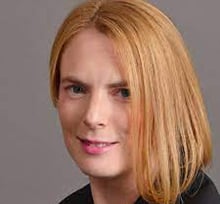 Humanities expertise often lacks representation in policymaking and public bodies addressing critical contemporary issues. While music departments in the UK significantly contribute to local and national arts and culture, music and sound research remains limited in shaping policy, except within specific areas. This research, however, holds the potential to enhance policy thinking across multiple domains. This OPEN Leaders project, leveraging the Faculty of Music’s interdisciplinary nature and strong cultural engagement, aims to address this gap. By raising awareness among the faculty, broader institutions, and policymakers, the project seeks to expand the role of music research in policy and foster sustainable pathways for professional development
Humanities expertise often lacks representation in policymaking and public bodies addressing critical contemporary issues. While music departments in the UK significantly contribute to local and national arts and culture, music and sound research remains limited in shaping policy, except within specific areas. This research, however, holds the potential to enhance policy thinking across multiple domains. This OPEN Leaders project, leveraging the Faculty of Music’s interdisciplinary nature and strong cultural engagement, aims to address this gap. By raising awareness among the faculty, broader institutions, and policymakers, the project seeks to expand the role of music research in policy and foster sustainable pathways for professional development
Priya Atwal, Faculty of History
Dr Priya Atwal is the Community History Fellow at Oxford's History Faculty. She is coordinating the development of a new 'community history hub' at the Faculty: a space for engaging in collaborative, ethical, co-produced research by academic historians and community partners. She is using her funding from the OPEN Leaders scheme to run a series of training workshops and a public seminar. The aim of these events is to up-skill and empower the hub's network of diverse, interdisciplinary researchers to consider how they can build links connecting their community-engaged historical research with local policy agendas, in order to help tackle and address areas of socio-political inequality. This is a new departure for Oxford's History Faculty, but will allow for a fresh discussion about how History can help to enrich and sharpen policy interventions at both a local and national level.
Guillaume Matthews, Processing of Advanced Materials Group
 Guillaume is a Faraday Research Fellow at the University of Oxford working on materials for energy applications. He is currently involved in several projects exploring the design of innovative electrodes for Li-ion and solid-state batteries.
Guillaume is a Faraday Research Fellow at the University of Oxford working on materials for energy applications. He is currently involved in several projects exploring the design of innovative electrodes for Li-ion and solid-state batteries.
As one of the OPEN leaders, he is investigating how Engineers and Materials Scientists can connect with policy makers to increase their societal impact and provide expert advice in fields where Materials Science play a central role such as energy, recycling and transport. Dedicated events will be organised to demystify policy making and provide an opportunity for junior researchers to meet and engage with policy makers and scientific advisors.
Carinne Piekema, Nuffield Department of Clinical Neurosciences
Carinne will use her award to create a long-term sustainable strategy for policy engagement at the Wellcome Centre for Integrative Neuroimaging (WIN). In addition, the project also includes the creation of a framework for WIN leadership and researchers to identify research projects with policy engagement potential, and focus group sessions with policy makers to establish where they go for evidence for new policies to help improve the visibility of WIN research and researchers.
“The award gives me the opportunity to embed policy engagement firmly in WIN’s research culture, while also allowing me to hone my skills as a leader in this area. I relish the opportunity to work with people outside of academia to gain a wider perspective and maximise the impact of our research.”
Jessica Walsh, Nuffield Department of Clinical Neurosciences
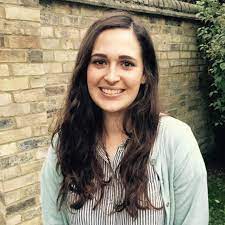 A survey of staff in my department showed that while a high percentage of staff were interested in policy engagement, a very low percentage had engaged with policy. Jessica applied for the OPEN Leaders award to address this challenge through targeted activities across these three areas. The activities served as capacity building exercises to improve knowledge across both researchers and the core staff who support them, and to develop high quality training materials that can be delivered both now, and in the future, to empower Wellcome Centre for Integrative Neuroimaging (WIN) researchers to engage with policymakers.
A survey of staff in my department showed that while a high percentage of staff were interested in policy engagement, a very low percentage had engaged with policy. Jessica applied for the OPEN Leaders award to address this challenge through targeted activities across these three areas. The activities served as capacity building exercises to improve knowledge across both researchers and the core staff who support them, and to develop high quality training materials that can be delivered both now, and in the future, to empower Wellcome Centre for Integrative Neuroimaging (WIN) researchers to engage with policymakers.
Cervantee Wild, Nuffield Department of Primary Care Health Sciences
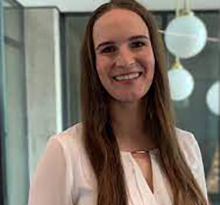 With this award Cervantee planned speaker series with relevant policy makers and policy-engaged researchers and developed an initial ‘toolkit’ to aid researchers with embedding policy engagement in their projects from their inception and support future policy engagement within the Department and with our relevant collaborators. The aim of the sessions was to spark conversation within the Department about why policy engagement is important for research impact, who our most relevant stakeholders are, and how we should best engage with them. This award kickstarted what we hope to be an ongoing commitment to developing policy engagement skills among early- and mid-career researchers in the Department.
With this award Cervantee planned speaker series with relevant policy makers and policy-engaged researchers and developed an initial ‘toolkit’ to aid researchers with embedding policy engagement in their projects from their inception and support future policy engagement within the Department and with our relevant collaborators. The aim of the sessions was to spark conversation within the Department about why policy engagement is important for research impact, who our most relevant stakeholders are, and how we should best engage with them. This award kickstarted what we hope to be an ongoing commitment to developing policy engagement skills among early- and mid-career researchers in the Department.
Albert Park, Department of International Development
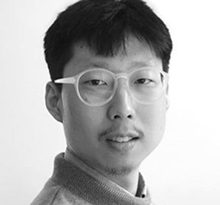 The challenge addressed by this OPEN Leaders project centred on building institutional capacity for policy engagement across the Oxford Department of International Development (ODID) and individual capacity in putting policy engagement to practice. Proposed activities in the former include identifying institutional barriers and best practices for effective policy engagement. The project found that individual perceptions of (and institutional conditions for) policy engagement vary significantly even within the same department across career stages and disciplinary backgrounds. At the University level, it also highlights limitations in not just policy engagement opportunities on offer, but in effective communication and incentivisation against a range of pressing academic demands (e.g., research, teaching, administration, career advancement). The latter individual experience afforded by this project extended into the hosting of a joint academic-policy workshop on resilience policy for sustainable development. This experience bore further insights into the many practical challenges faced in academic-policy engagement. This included misaligned timelines for joint work, mutual constraints on time, and diverging standards for what constitutes ‘good’ (e.g., academic versus policy-relevant) outputs. On the whole, attempts to implement and sustain best practices for policy engagement would benefit from a clearer recognition of such individual and institutional constraints, alongside efforts to concretely address ensuing barriers.
The challenge addressed by this OPEN Leaders project centred on building institutional capacity for policy engagement across the Oxford Department of International Development (ODID) and individual capacity in putting policy engagement to practice. Proposed activities in the former include identifying institutional barriers and best practices for effective policy engagement. The project found that individual perceptions of (and institutional conditions for) policy engagement vary significantly even within the same department across career stages and disciplinary backgrounds. At the University level, it also highlights limitations in not just policy engagement opportunities on offer, but in effective communication and incentivisation against a range of pressing academic demands (e.g., research, teaching, administration, career advancement). The latter individual experience afforded by this project extended into the hosting of a joint academic-policy workshop on resilience policy for sustainable development. This experience bore further insights into the many practical challenges faced in academic-policy engagement. This included misaligned timelines for joint work, mutual constraints on time, and diverging standards for what constitutes ‘good’ (e.g., academic versus policy-relevant) outputs. On the whole, attempts to implement and sustain best practices for policy engagement would benefit from a clearer recognition of such individual and institutional constraints, alongside efforts to concretely address ensuing barriers.
Dr Arlene Holmes-Henderson, Faculty of Classics
 Arlene used her award to build capacity in, and outside, the faculty, including through organisation of training for OPEN members to better understand the risks and benefits of social media in policy engagement. She also strengthened connections with researchers across Oxford with an interest in languages education policy.
Arlene used her award to build capacity in, and outside, the faculty, including through organisation of training for OPEN members to better understand the risks and benefits of social media in policy engagement. She also strengthened connections with researchers across Oxford with an interest in languages education policy.
Arlene says, 'As an OPEN Leader, I have supported colleagues across the Humanities Division with their policy engagement ambitions. Communication, collaboration and knowledge exchange have been central to our collective success.'
Dr Olga Ioannidou, Department of Education
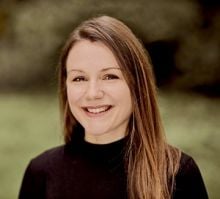 Olga used her award to build consensus among departmental colleagues on how better to support and pursue policy engagement, including through organisation of panel discussions of different ways in which research informs educational policy in, and outside, the UK.
Olga used her award to build consensus among departmental colleagues on how better to support and pursue policy engagement, including through organisation of panel discussions of different ways in which research informs educational policy in, and outside, the UK.
'This award has helped me to develop skills and a deeper understanding of the factors that make effective engagement possible,' Olga reports. 'With support from colleagues in the department and divisional office, as well as the Policy Engagement Team, I’ve also been able to widen our network in the policymaking community.'
Dr Jasper Montana, School of Geography and the Environment
 Leading a team of three, and drawing on the wealth of experience in the Oxford Biodiversity Network, Jasper used his award to organise a series of seminars and a workshop exploring the opportunities and challenges of engaging with policy for nature and biodiversity.
Leading a team of three, and drawing on the wealth of experience in the Oxford Biodiversity Network, Jasper used his award to organise a series of seminars and a workshop exploring the opportunities and challenges of engaging with policy for nature and biodiversity.
'The engagement of more than 30 Oxford researchers showed the general appetite for skills-development in policy engagement', Jasper concluded. 'I was really pleased to co-develop guidance from the seminars, and ideas from the workshop as resources to support future policy engagement at Oxford. It was great to connect with other OPEN Leaders and be supported by the Policy Engagement Team.'
Dr Catherine Wheatley, Nuffield Department of Clinical Neurosciences
 Catherine used her award to Catherine used her OPEN Leaders award to develop capacity for policy engagement across the Wellcome Centre for Integrative Neuroimaging (WIN), comprising staff and students across three University departments
Catherine used her award to Catherine used her OPEN Leaders award to develop capacity for policy engagement across the Wellcome Centre for Integrative Neuroimaging (WIN), comprising staff and students across three University departments
'This award gave me the opportunity to consult widely with colleagues across WIN and raise the profile of policy engagement with its management board,' said Catherine. 'It has contributed to my professional development, and given others skills that they have already used to respond to a parliamentary inquiry.'